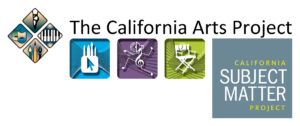Join us for one, two, three, or all webinars featuring artists, scholars, engineers, and critics who are using emerging technologies to create art and explore relationships.
Dates
- February 8, 2024 | Jun-Yan Zhu — Pittsburgh, PA, USA
- February 9, 2024 | Entangled Others — Lisbon, Portugal
- February 15, 2024 | Jenna Sutela — Berlin, Germany
- February 16, 2024 | Anna Ridler — London, UK
- February 22, 2024 | Sarah Meyohas — New York, NY, USA
- February 23, 2024 | Mike Tyka — Berlin, Germany & Seattle, WA, USA
- February 29, 2024 | Lev Manovich — Seoul, Korea & New York, NY, USA
- March 1, 2024 | Simon Colton — Zaragoza, Spain & London, UK
- March 7, 2024 | Madeline Gannon — Miami, FL, USA
- March 14, 2024 | Eryk Salvaggio — Rochester, NY, USA
Times
- Thursday webinars: 3:30 – 5:00 PM (PT)
- Friday webinars: 10:00 – 11:30 AM (PT)
Price: Free
The Zoom link will be sent to you prior to the webinar. Please register at least one day before the webinar to ensure that you receive the Zoom link in time.
Questions? Please email reach.tcap@gmail.com
Speakers
Jun-Yan Zhu — Pittsburgh, PA, USA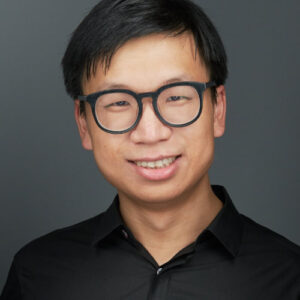
Thursday, February 8, 3:30–5:00 PM
Jun-Yan Zhu is an Assistant Professor at CMU’s School of Computer Science. Prior to joining CMU, he was a Research Scientist at Adobe Research and a postdoc at MIT CSAIL. He obtained his Ph.D. from UC Berkeley and B.E. from Tsinghua University. He studies computer vision, computer graphics, and computational photography. His current research focuses on generative models for visual storytelling. He has received the Packard Fellowship, the NSF CAREER Award, the ACM SIGGRAPH Outstanding Doctoral Dissertation Award, and the UC Berkeley EECS David J. Sakrison Memorial Prize for outstanding doctoral research, among other awards. His co-authored work has received the NVIDIA Pioneer Research Award, SIGGRAPH 2019 Real-time Live Best of Show Award and Audience Choice Award, and The 100 Greatest Innovations of 2019 by Popular Science.
Entangled Others — Lisbon, Portugal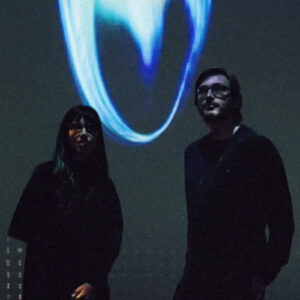
Friday, February 9, 10:00–11:30 AM
Entangled Others stands as an artistic initiative co-founded by Sofia Crespo and Feileacan McCormick. Crespo, driven by an intrigue in the intricate relationships and disjunctions between humans and technology, dedicates herself to unraveling how organic life harnesses artificial mechanisms to replicate and undergo evolutionary processes. McCormick, a generative artist, researcher, and former architect, centers his artistic practice around ecology, nature and generative arts. His primary emphasis lies in granting non-human entities novel forms of existence and vitality within the digital realm.
Jenna Sutela — Berlin, Germany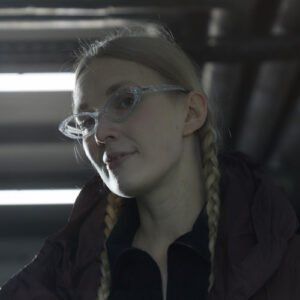
Thursday, February 15, 3:30–5:00 PM
Jenna Sutela is a Finnish artist based in Berlin. She works with biological and computational systems, including the human microbiome and artificial neural networks to create sculptures, images and music. Sutela’s work has been presented at museums and art contexts internationally, including Swiss Institute, New York (2023), Haus der Kunst, Munich (2022); Castello di Rivoli Museo d’Arte Contemporanea, Rivoli-Turin (2022); Kiasma Museum of Contemporary Art, Helsinki (2022); Shanghai Biennale (2021); Liverpool Biennial (2021); Kunsthall Trondheim (2020); Centre d’Art Contemporain Genéve (2020); Serpentine Galleries, London (2019); and Moderna Museet, Stockholm (2019). She was a Visiting Artist at the MIT Center for Art, Science & Technology (CAST) in 2019-21.
Anna Ridler — London, UK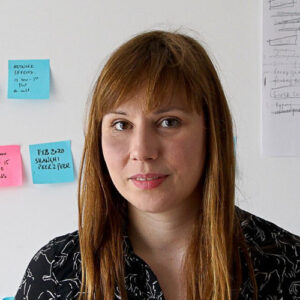
Friday, February 16, 10:00–11:30 AM
Anna Ridler is an artist and researcher who works with systems of knowledge and how technologies are created in order to better understand the world. She is particularly interested in ideas around the natural world. Her process often involves working with collections of information or data, particularly datasets, to create new and unusual narratives.
Sarah Meyohas — New York, NY, USA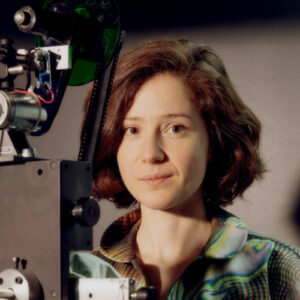
Thursday, February 22, 3:30–5:00 PM
Sarah Meyohas is a conceptual artist whose practice considers the nature and capabilities of emerging technologies in contemporary society. Using the familiar emblems of biological life, Meyohas investigates the complex operations that increasingly govern our world: soaring birds, created using augmented-reality software, flock in unison with the frenetic variations of the stock market; rose petals, aggregately identical but individually unique, comprise the dataset for their AI-created equivalents; Bitcoin, a cryptocurrency backed by physical artworks, questions the speculative value of cryptocurrency and the ineffable value of art. Meyohas creates an intelligible visual language to articulate the systems and technologies that increasingly influence our world.
Meyohas is represented by Marianne Boesky Gallery and has been exhibited in New York at Red Bull Arts, 303 Gallery, Rockefeller Center, and the New Museum of Contemporary Art and internationally at institutions including the Barbican Centre, London, the Jameel Arts Center, Dubai, and the Ming Contemporary Art Museum, Shanghai. Her work is also in the collection of The Centre Pompidou, Paris. She has been featured in The Wall Street Journal, The New York Times, Vice, and Artforum, and has appeared on CNBC, PBS, and CBC. Her film Cloud of Petals has been screened at various film festivals around the world, including the Slamdance Film Festival and the Locarno Film Festival. In 2017 she was named to the Forbes 30 under 30 list. Meyohas holds dual degrees in Finance and International Relations from the University of Pennsylvania and in 2015 received her M.F.A. from Yale University.
Mike Tyka — Berlin, Germany & Seattle, WA, USA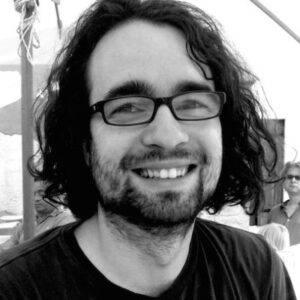
Friday, February 23, 10:00–11:30 AM
Mike Tyka became involved in creating sculpture and art in 2009 when he helped design and construct Groovik’s Cube, a 35ft tall, functional, multi-player Rubik’s cube installed in Reno, Seattle and New York. Since then his artistic work has focused both on traditional sculpture and modern technology, such as 3D printing and artificial neural networks. His sculptures of protein molecules use cast glass and bronze and are based on the exact molecular coordinates of each respective biomolecule. They explore the hidden beauty of these amazing nanomachines, and have been shown around the world from Seattle to Japan. Mike also works with artificial neural networks as an artistic medium and tool. In 2015, he created some of the first large-scale artworks using Iterative DeepDream and co-founded the Artists and Machine Intelligence program at Google. In 2017, he collaborated with Refik Anadol to create a pioneering immersive projection installation using Generative Adversarial Networks called “Archive Dreaming”. His latest generative series, “Portraits of Imaginary People,” has been shown at ARS Electronica in Linz, Christie’s in New York and at the New Museum in Karuizawa (Japan). His kinetic, AI-driven sculpture “Us and Them” was featured at the 2018 Mediacity Biennale at the Seoul Museum of Art and in 2019 at the Mori Art Museum in Tokyo.
Lev Manovich — New York, NY, USA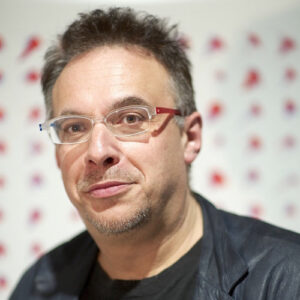
Thursday, February 29, 3:30–5:00 PM
Lev Manovich is an artist, author, and one of the world’s most influential digital culture theorists. After studying visual art, architecture, and filmmaking, Manovich began using computers to create digital art in 1984. His work has been exhibited in 14 solo and 122 international group exhibitions at many prestigious institutions, such as the Institute for Contemporary Art (London), Centre Pompidou, The Shanghai Biennale, and The ZKM | Center for Art and Media.
Manovich played a key role in creating four new research fields: new media studies (1991-), software studies (2001-), cultural analytics (2007-) and AI aesthetics (2018-). He is Presidential Professor of Computer Science at City University of New York’s Graduate Center and the Director of the Cultural Analytics Lab. His books include Artificial Aesthetics, Cultural Analytics, Instagram and Contemporary Image, and The Language of New Media, which has been called “the most provocative and comprehensive media history since Marshall McLuhan.” Manovich was included in the lists “25 People Shaping the Future of Design” (Complex, 2013) and “50 Most Interesting People Building the Future” (Verge, 2014).
Simon Colton — Zaragoza, Spain & London, UK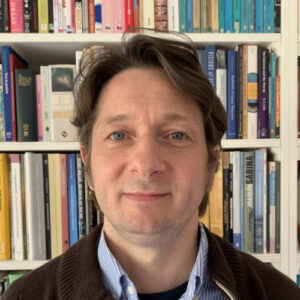
Friday, March 1, 10:00–11:30 AM
Simon Colton is a professor of computational creativity, a generative artist and an app developer. He has academic appointments at Queen Mary University of London and at SensiLab of Monash University in Australia. He is an AI researcher with 25 years of experience studying questions related to creativity in machines. He has worked on generative mathematics, bioinformatics, graphic design, visual art, music, creative language and videogame design projects. He has led projects leading to large software installations challenging assumptions about creativity, including The Painting Fool automated artist, the HR generative mathematics system(s), the WhatIf Machine fictional ideation engine, the Wevva casual game creator and the Art Done Quick visual art casual creator.
Madeline Gannon — Miami, FL, USA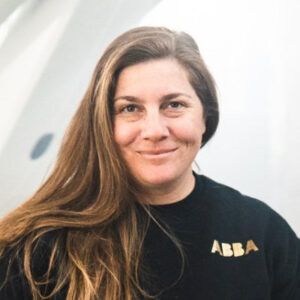
Thursday, March 7, 3:30–5:00 PM
Dr. Madeline Gannon is a multidisciplinary designer blending techniques in art, design, computer science, and robotics to forge new futures for human-robot relations. Also known as “The Robot Whisperer”, Gannon specializes in convincing robots to do things they were never intended to do: from transforming giant industrial robots into living, breathing mechanical creatures, to taming hordes of autonomous machines to behave like a pack of animals.
Gannon believes that technology is a cultural medium, and tunes her work to engage communities across science and society. Her works have been exhibited at international cultural institutions, published at academic conferences, and profiled at global media outlets, such as the BBC, the Guardian, FT, the Science Channel, WIRED, FastCompany, Dezeen, and The Verge.
Dr. Gannon is a World Economic Forum Cultural Leader, a former Robotics & AI Researcher at NVIDIA and a former artist in residence at ETH Zurich, Autodesk Pier 9, and the Carnegie Mellon STUDIO for Creative Inquiry. She is known as one of the ‘Top 10 Women in Robotics Industry’ and ‘World’s 50 Most Renowned Women in Robotics’ according to Analytics Insight. Gannon holds a M.Arch from Florida International University, and a Ph.D in Computational Design from Carnegie Mellon University.
Eryk Salvaggio — Rochester, NY, USA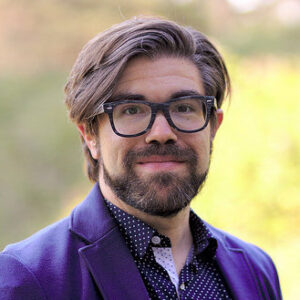
Thursday, March 14, 3:30–5:00 PM
Eryk Salvaggio is a creative researcher and artist exploring technology for 25 years. With generative AI, he has explored the tensions and frictions between algorithmic artmaking through “creative misuse,” that is, repurposing outputs, deliberately confusing the system, and challenging the notions of art and creativity embedded within them. His work has been featured at the hacker’s convention, DEFCON 31, and in a number of galleries, exhibitions, and conferences. He has collaborated on projects related to generative AI and/or systems design with Universities (RIT, University of Cambridge, ECAL, Brown University, NYU, Elisava Barcelona, Michigan State University), non-profits (AIxDesign, American Society for Cybernetics), has coverage in The New York Times, Wired Magazine, BBC4 and published in academic journals such as Patterns, Leonardo, IMAGES, and Interactions of the ACM.
Moderators
Dr. Ahran Koo, Associate Professor of Arts Education, CSU Frenso
Armalyn De La O, Regional Director, RIMS California Arts Project, CSU San Bernardino
Sponsors
The California Arts Project is honored to co-sponsor the series hosted by California State University, Frenso’s Art Education Program. Other sponsors include National Art Education Foundation, and Fresno State Office of IDEAS (Innovation & Digital Excellence for Academic Success).



